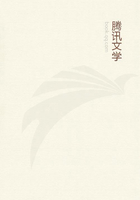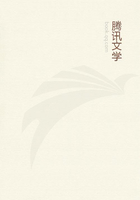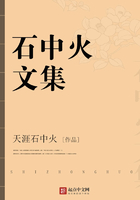In the same year,1620,Juan de Luna's Second Part of the Life of Lazarillo of Tormes was published in Paris.(Another edition was published simultaneously in Paris,but was marked as though printed in Zaragoza to facilitate the book's sale in Spain.)Little is definitely known about Luna.We do know that he was born in Spain--perhaps in Aragon.He apparently fled to France in 1612as a political and religious refugee:in one of his books he refers to himself as "a foreigner who has left behind his homeland,his relatives,and his estate for a just and legitimate cause."It has been speculated that Luna may have been educated for the priesthood but then grown dissatisfied and even vehemently bitter toward the clergy.The reason for his flight to France has been interpreted as a flight from the Spanish Inquisition.In France,in Montauban,he began to study theology to prepare himself for the Protestant ministry.But soon afterward he became a Spanish teacher in Paris,and in 1619published a book of proverbs and phrases for Spanish students.The following year his continuation of Lazarillo was published,along with a revised version of the original Lazarillo (revised because its style did not suit his tastes).Next he appeared in London,in 1622,attempting to have his sequel translated into English.His Spanish grammar was published there the following year.The last information we have of him is that he became a Protestant minister in England,and for three years delivered sermons to his fellow Spaniards each Sunday,in Mercer's Chapel,Cheapside,London.
Although the details of Juan de Luna's life are rather sketchy,a great deal more can be said about his novel.His continuation of Lazarillo was the only sequel to meet with any success.The same characters--Lazarillo,the archpriest,the squire,etc.--are here,but their personalities are changed drastically.The squire is the one who is most noticeably different.He is no longer the sympathetic,poor,generous (when he has money)figure of the first part.Now he is a thief,a cowardly braggart,a dandy,and Lazaro has nothing but scorn for him.Lazaro himself is now fully grown,and there is no room for his personality to change as before.Perhaps the only character who is still the same is Lazaro's wife.
Other differences between the two novels are also evident.In the first,Lazarillo we see a central protagonist who serves a different master or performs a different type of work in each chapter.But in Luna's sequel we do not have this same structure.In the first five chapters of Luna's book,for example,Lazarillo's adventures flow as they do in traditional novels:he goes to sea,the ship sinks,he is captured by fishermen and put on exhibition as a fish,and finally he is rescued.The following chapters,however,often divide his life into segments as he goes from one position to another.
Another difference to be noted is that while the first Lazarillo addresses a certain person ("You":Vuestra merced)who is not the reader,but an acquaintance of the archpriest,in the Second Part something quite different occurs.Luna's Lazaro addresses the "dear reader"but hardly with flattering terms:he humorously suggests that we may all be cuckolds.Then he ironically refuses to tell us about--or even let us think about--certain promiscuous details because they may offend our pure and pious ears.The framework of the first novel is apparently a device whose purpose,like the "Arabic historian"and the "translators"of Don Quixote ,is to create an atmosphere of realism,while Luna's "dear reader"is simply a device for humor.
Another important distinction to be made between the two books is the extent of word-play used.Almost one hundred years elapsed between the times the two books were published,and literary styles changed a great deal.While the first Lazarillo used some conceits,as we have previously noted,Luna's book abounds with them to the point where it becomes baroque.About people who are being flooded with water or are drowning,it is usually said that they are overcome by trifling,but watery,circumstances:"a drop in the ocean"(ahogar en tan poca agua).Lazarillo's child is "born with the odor of saintliness about her"(una hija ingerta a canutillo);unfortunately this refers less to her as holy than it does to the fact that her father is really the archpriest.The use of antithesis is also evident throughout Luna's novel.From the beginning in which he dedicated his small work to a great princess,throughout the length of the book,we find Lazaro esteemed by his friends and feared by his enemies,begging from people who give money with open hands while he does not take it with closed ones,and so on.Another trick in language is Luna's plays on sounds:such combinations as sali--salte (left--leaped),comedia--comida (rituals--victuals)are abundant.Luna also uses obscene conceits for a humorous purpose,mixing them with religious allusions both for humor and to vent his own feelings of hostility against the church.















